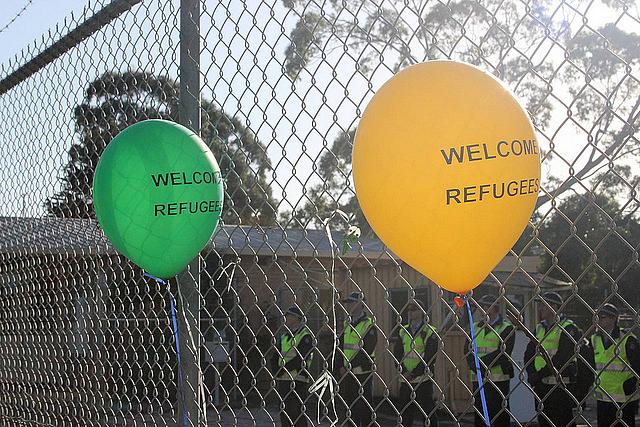Unaccompanied minors struggle to get the health care they need

Many children have fled rampant gang violence in Central America to embark on the treacherous journey to the United States, but once on U.S. soil these unaccompanied minors are swept up in a whirlwind of stressors including court hearings, detention and integration. Some of these minors made the journey across the border pregnant, others suffer from serious physical and psychological illnesses stemming from the stresses of their journey and the violence they’ve experienced. Many of Los Angeles’ public agencies and advocacy groups are scrambling to address the issue.
In 2014, more than 56,000 unaccompanied minors arrived in the U.S., and between January and July of 2014, about 3,900 of those minors were put in the care of sponsors in Los Angeles.
After unaccompanied minors are released to their sponsors, the Office of Refugee Resettlement (ORR) is tasked with ensuring that the minors with medical and mental health needs get the services they need. But a recent report shows ORR does not have a system for tracking the unaccompanied minors. The department’s failure to follow up with the children has left more than 90 percent of the unaccompanied minors without the services they need.
The report said the lack of medical coverage, lack of knowledge about where to seek services, and the fear of being deported has made it challenging for unaccompanied minors to access certain health care services.
Media coverage of the unaccompanied minors has subsided in the past couple of months, although acculturation and adjustment, immigration hearings and deportations continue.
For my 2016 California Fellowship project, I plan to explore the accessibility and quality of health care provided to the unaccompanied minors in Los Angeles. That will include a focus on the accessibility and quality of pregnancy-related services, and the public school system’s approach in identifying and accessing treatment for mental and behavioral health issues among unaccompanied minors.
It would also be interesting to see how the expansion of full-scope Medi-Cal for undocumented children, starting in May, will affect the accessibility of health care for unaccompanied minors.
It’s been hard to find real data on these issues because, as the report states, the Department of Health and Human Services has no system for tracking the children. The California Department of Health Care Services, which provides restricted scope Medi-Cal and pregnancy related services to undocumented minors, does track the number of undocumented immigrants using the program but the data is not broken down by age or country of origin.
To get the information I need, I will have to work with different advocacy groups, health care providers and law firms working with these children. County Medi-Cal offices, community health care clinics, family and immigration court asylum requests and LAUSD’s Student Health and Human Services could all provide data and information related to services, referrals, barriers, follow-ups and complaints from unaccompanied minors and their sponsors.
[Photo by Takver via Flickr.]
